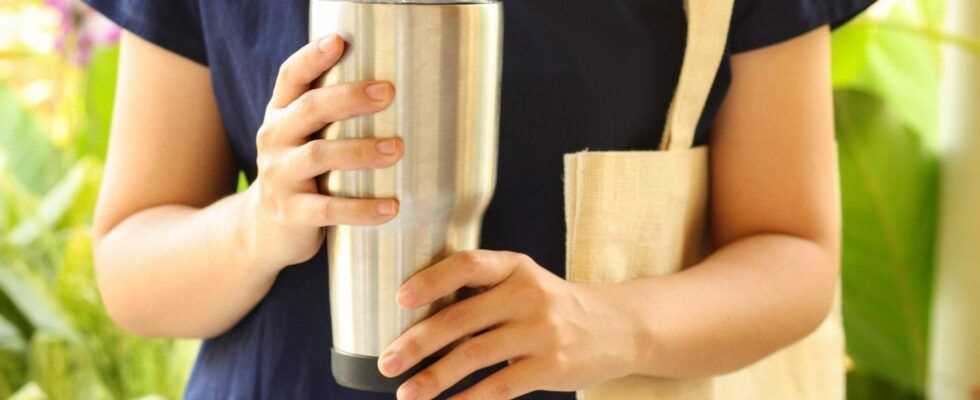There are tons of tips on how to live more sustainably. Old News? Nope! We asked professionals about their 22 current green tricks for everyday life.
Household chores
Milena Glimbovski
Founder of "Original Unverpackt" in Berlin. And author of “Simply Family Life”.
- Soapy hands under cold water makes them just as hygienically clean as under a warm jet.
- You save 20 percent electricity if unnecessary trays and casserole dishes come out of the oven before you throw it on.
- Mix it yourself: You can really mix all common cleaning agents from vinegar, washing soda, baking soda, citric acid and curd soap. Easy Peasy vinegar cleaner: Mix 400 ml of vinegar plus 200 ml of water, put it in the spray bottle, done.
- Don't let it fill up: at robinsonliste.deyou can unsubscribe from the mailbox advertising mailing list.
- If you set the heating just one degree colder, you save a whopping six percent energy. 20 degrees are sufficient in the living room and 17 degrees in the bedroom.
On road
Franziska Diallo, Judith Hehl
You write about sustainable travel and have founded a platform for green holiday accommodation.
- eScooter? Honestly:Better to cycle or run. Krass: The scooters are collected in the evening to load diesel vans (!). And: Their lifespan often ends after a few weeks. This is particularly severe because the batteries contain lithium, the extraction of which is very harmful to the environment. So no thanks!
- Even if it's nerdy: Take hazardous waste such as old batteries home with you and dispose of it safely here. Not every country is fit for hazardous waste …
- What many do not know: car trips can also be compensated at Atmosfair and Co.!
- Many countries cannot treat wastewater like we do. Therefore, use organic 2-in-1 shower and shampoo everywhere.
- We always have these things with us: 1 Thermo coffee mug and glass bottle for drinks to go 2 Stainless steel lunch box or a beeswax cloth for our snacks 3 3-in-1 cutlery for spontaneous lunches outside
Clothes box
Verena Bax
Environmental Policy Advisor at NABU.
- All ecos, now please be very strong: It has not yet been proven that the so-called "guppy bags" (washing bags that hold polyester fibers in the drum) really hold back microplastics. There are no independent studies for this. Some have already accused the whole thing of deceiving consumers. We need proof!
- Old clothes only end up in the general waste if they are soiled with chemicals, like the old painter's T-shirt. Purely tattered parts that are too broken for a second life can be recycled via the recycling center. They are unnecessarily burned in the residual waste.
- We don't have to wash jeans often. Great trick: if it smells, put it in the freezer to kill odors. Even more climate-friendly: air out your clothes at the window.
- Even if it sounds so nice: Wash nuts, balls and chestnuts are no more effective than pure water. Unfortunately, they are weak against stains and white laundry turns gray faster.
Daddle corner
Vreni Frost
Author, blogger and speaker. Writes about technology, but also about fashion and lifestyle.
- 24Millions of smartphones are sold here every year (!). Every single one has a huge ecological rat tail due to raw materials and production. Mega idea: old devices on cell phones for the environment send. There they are either prepared for a second life or properly recycled.
- When buying electrical products, make sure that they can be opened and that the battery can be removed. Then they don't have to be replaced immediately in the event of a defect, but can be repaired.
- Finally a lunch break in the office? The computer will go into sleep mode after a few minutes anyway, but we'll do it ourselves: All network connections are disconnected, immediately reducing power consumption. Yes!
- 18 trees disappear every year by ten office workers because they print so much. Banal but effective: printer switch to double-sided printing. Monday!
Food stuff
Wolfgang Bokelmann
He is professor emeritus for the economics of horticultural production at the HU Berlin and specializes in sustainability.
- In the supermarket you are very happy to take away the individually lying around bananas or the cucumber with a dry end. Otherwise they were only produced for the bin. If we don't pay attention, who will?
- If you can't do without zucchini or paprika in winter, you should choose varieties from southern Europe during that time. The heating energy requirement of the greenhouses is not as high as in Germany because the climate there is of course warmer.
- Frozen vegetables from Germany or neighboring countries were frozen in an energy-efficient way during the season. Thus, it is a top solution if the goods are currently only available fresh from far abroad.
- Sounds crazy, but the romaine lettuce, i.e. the one that grows tall, is more climate-friendly than its round colleague. Because the entire lower surface of the lettuce rests on, which is a breeding ground for fungi and pests – so it has to be sprayed more. Fewer pesticides mean less consumption of resources, which protects the environment and is even healthier.
Would you like to read more on the topic? Here you can order the sustainability magazine BE GREEN from BRIGITTE (from September 9th at the kiosk)!
